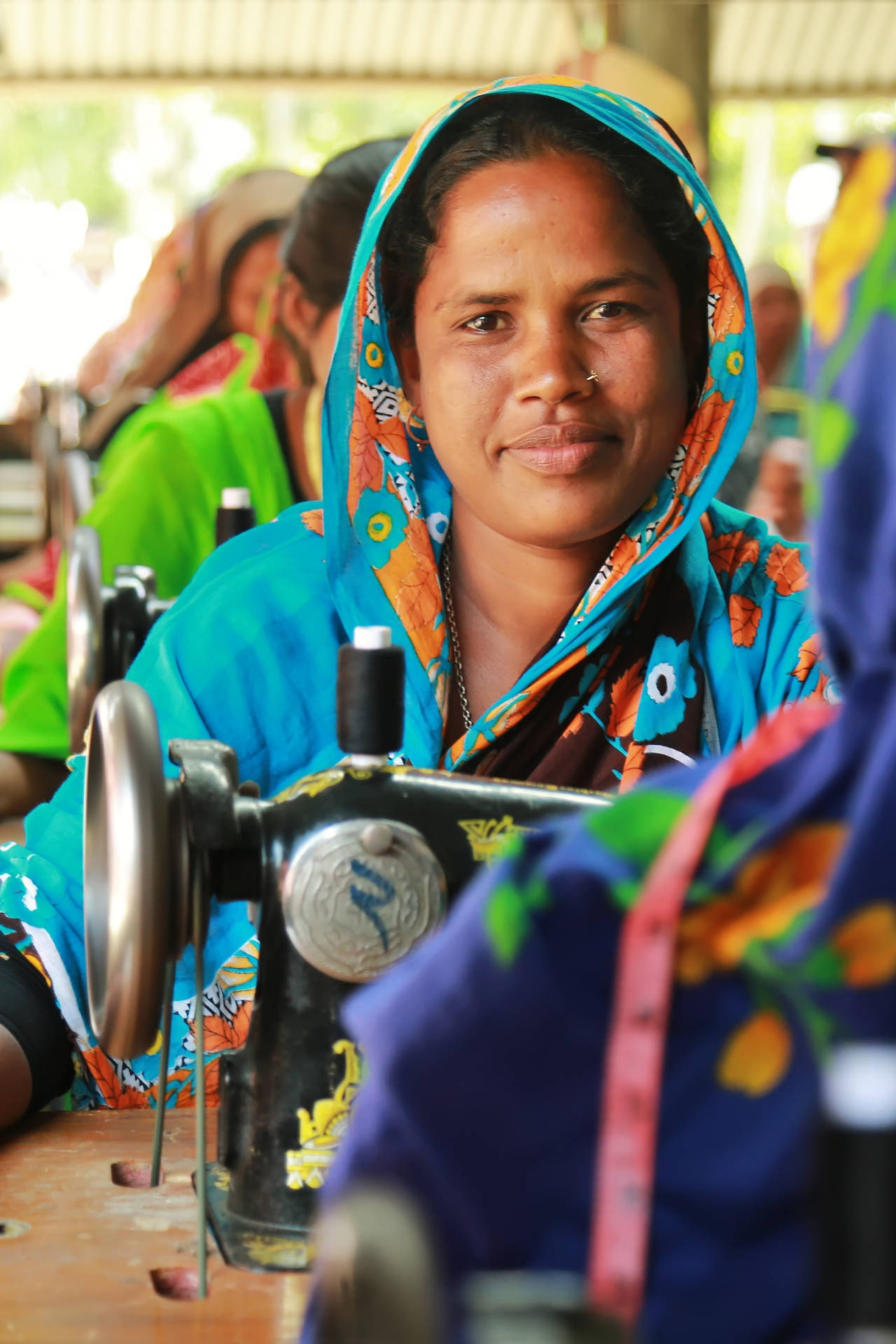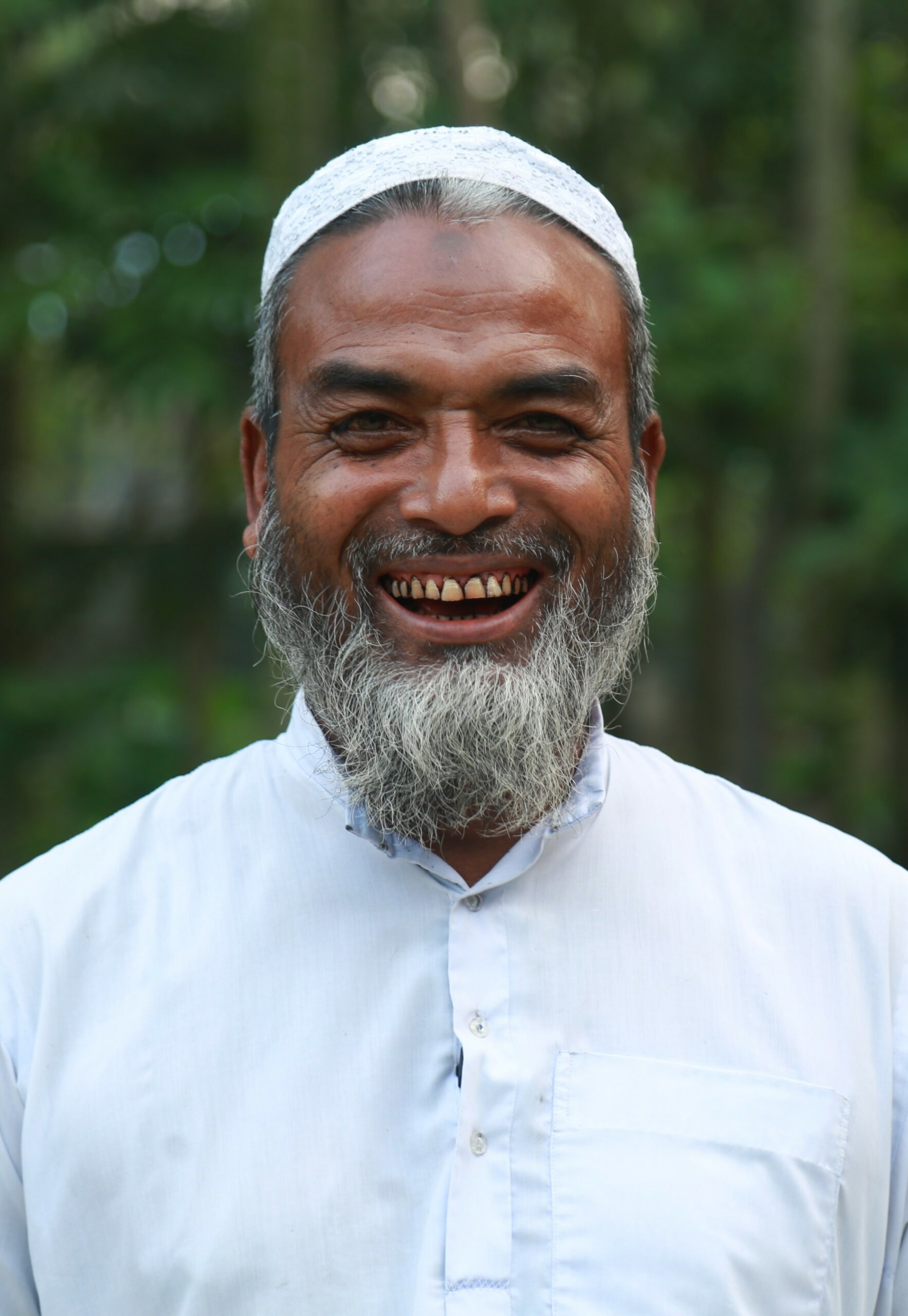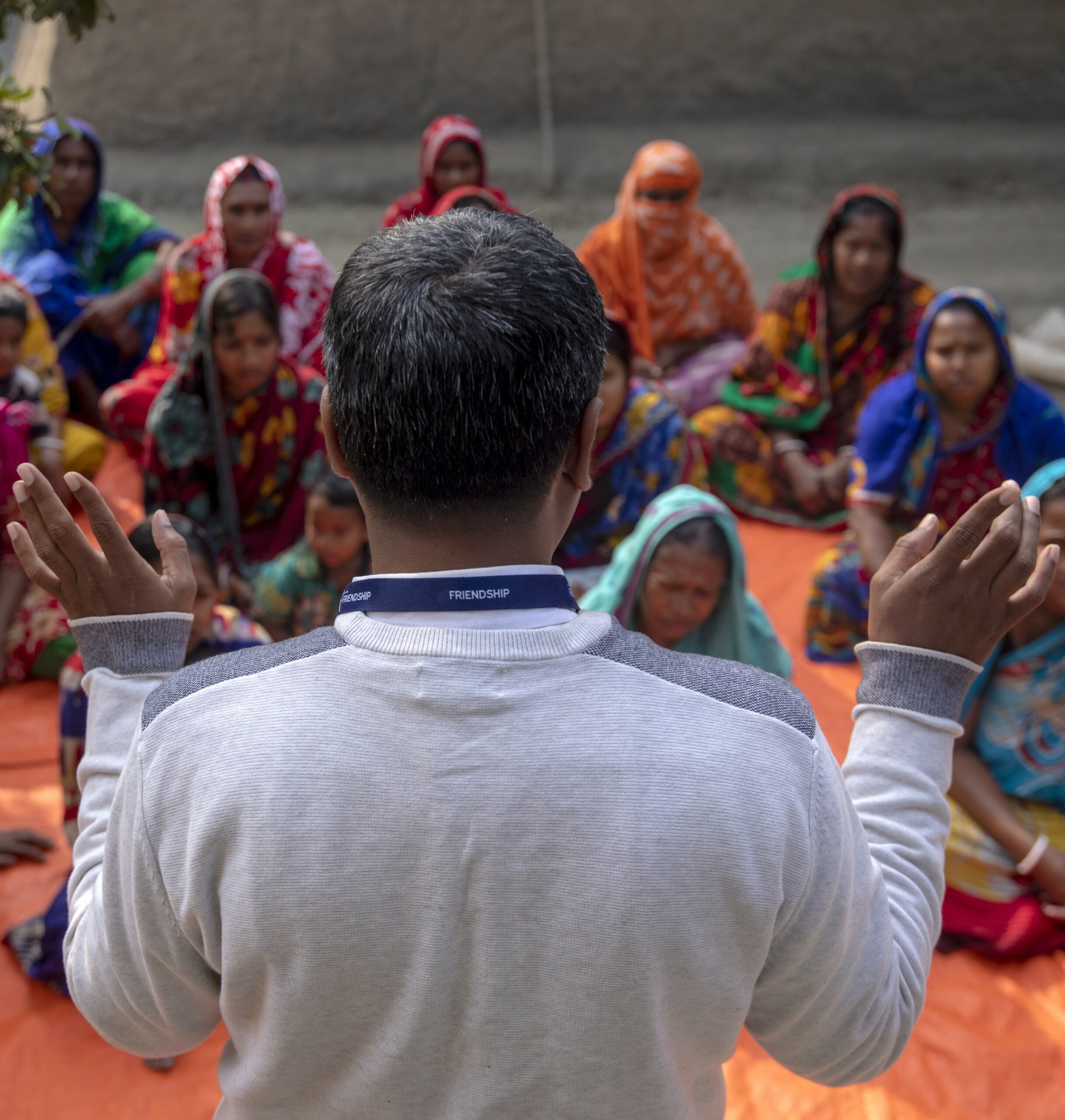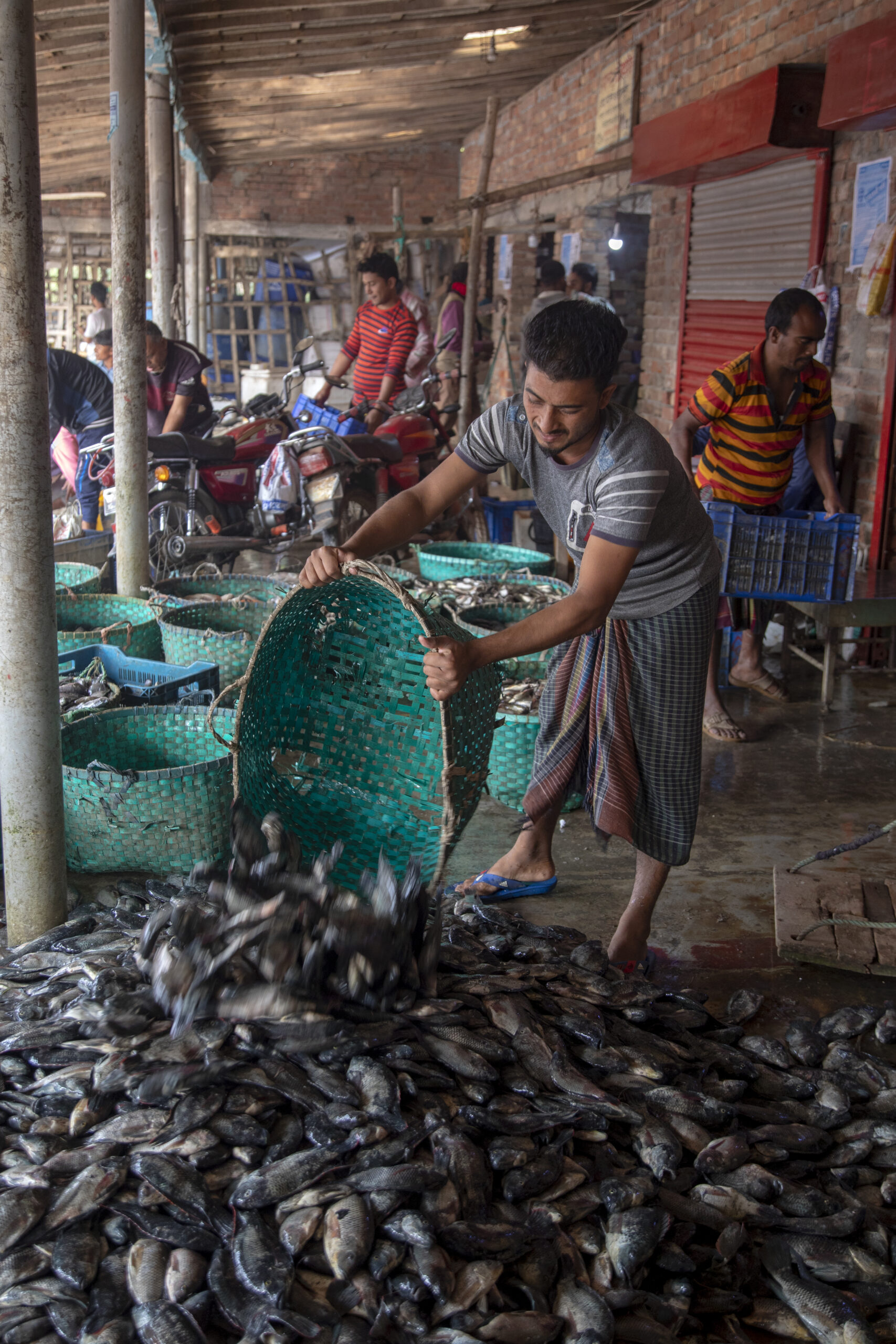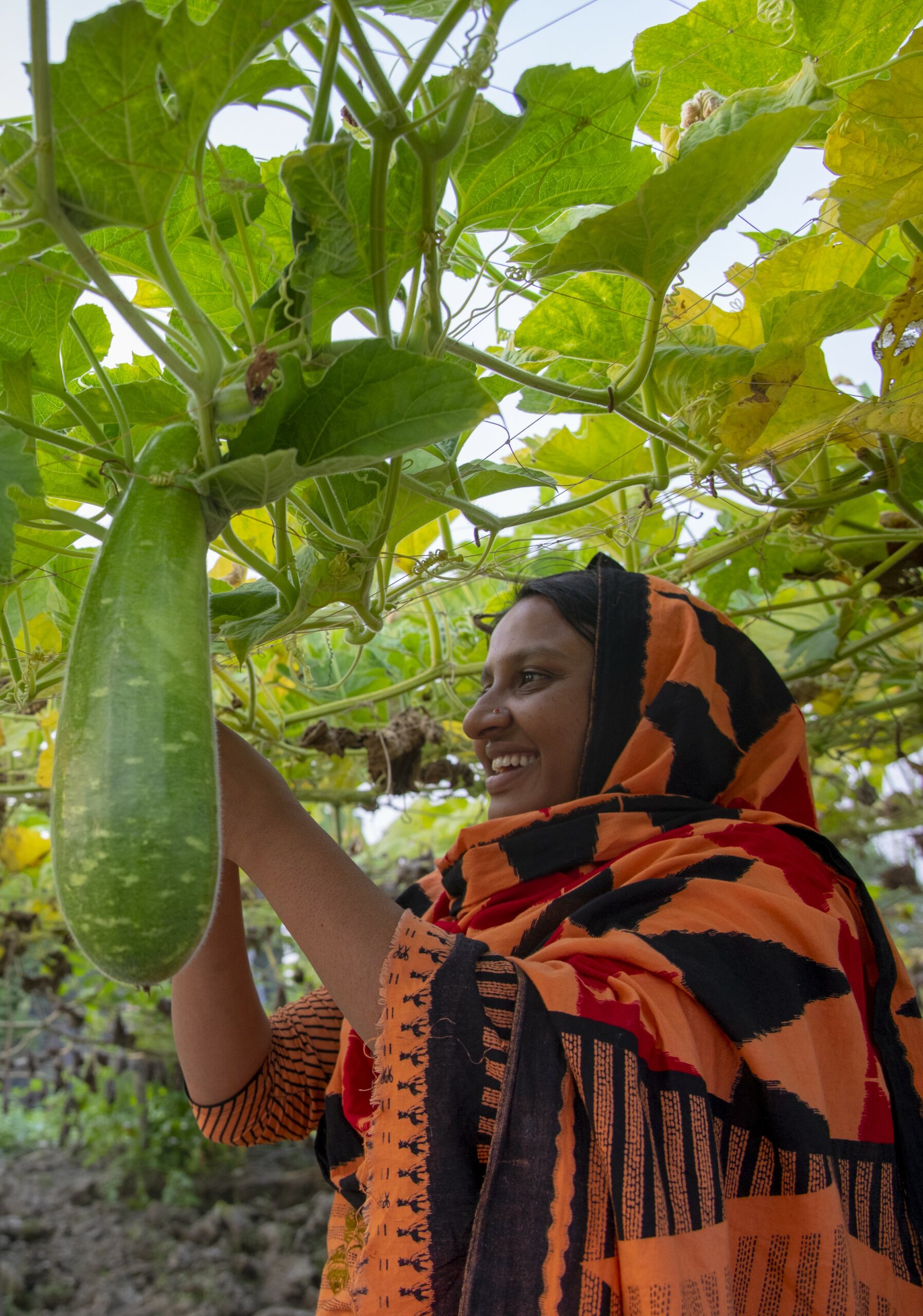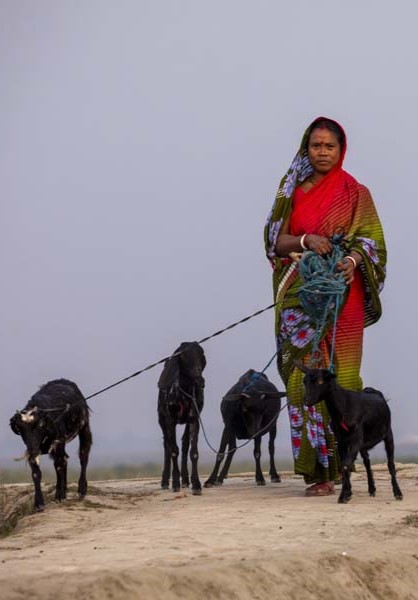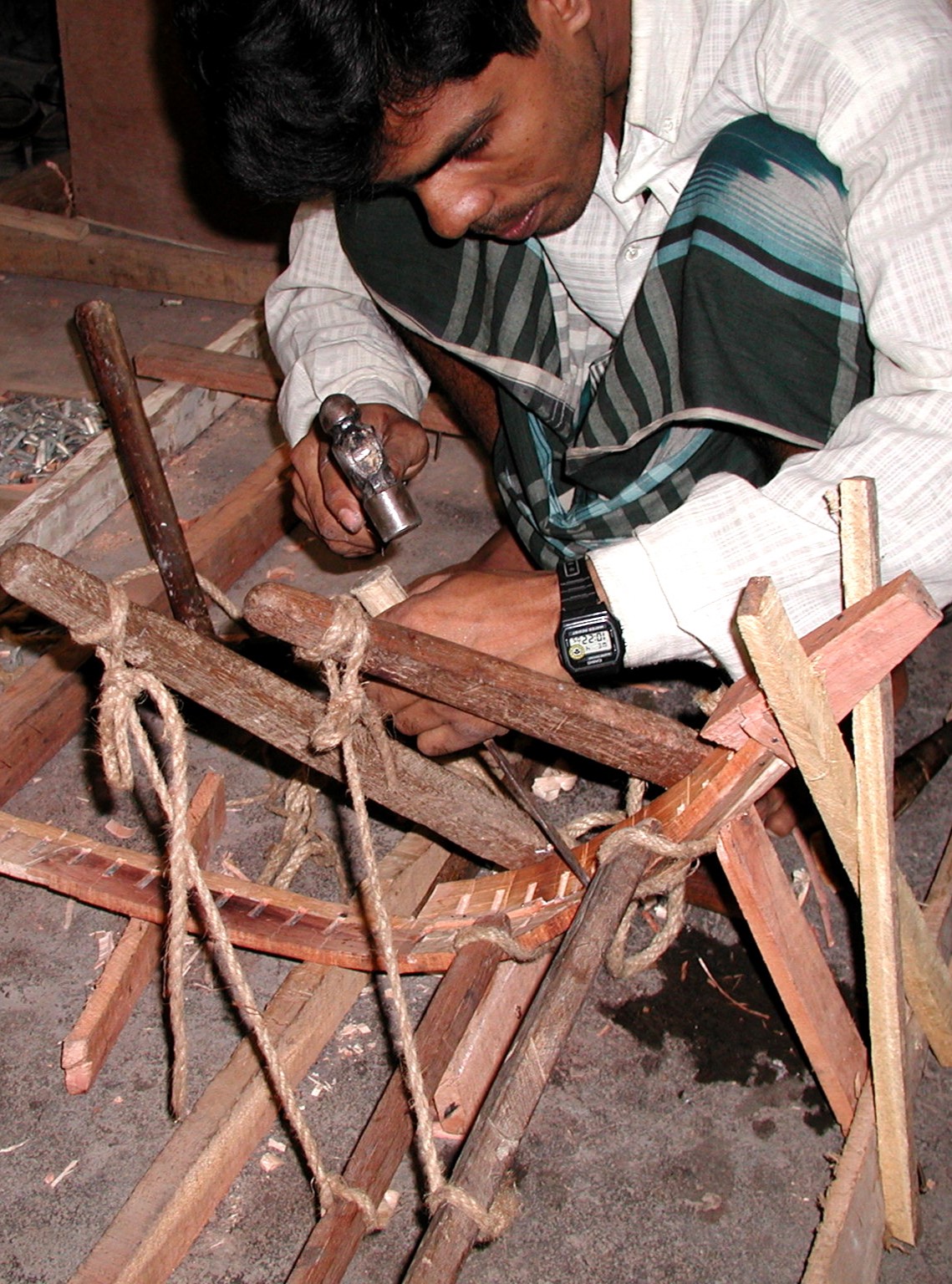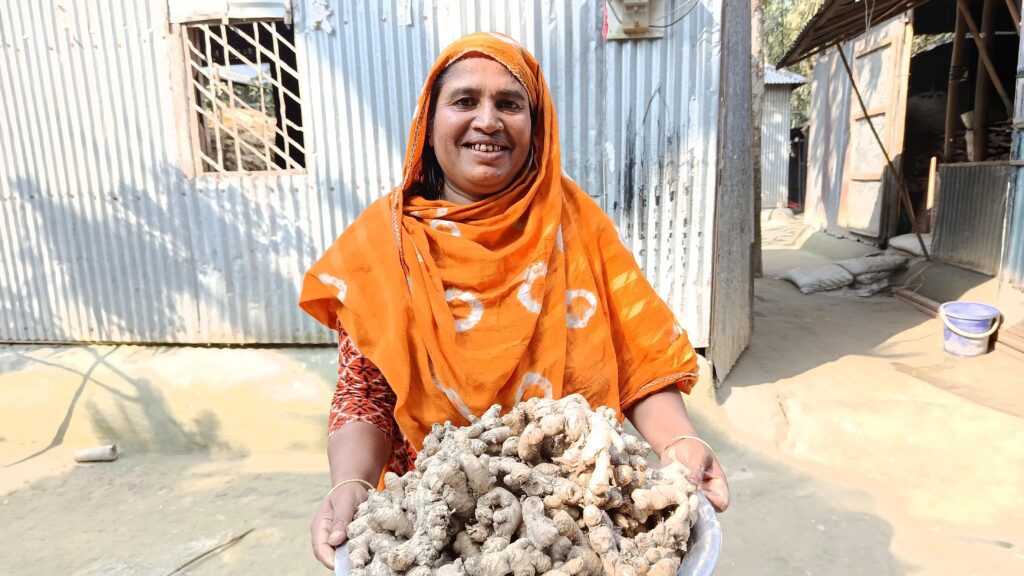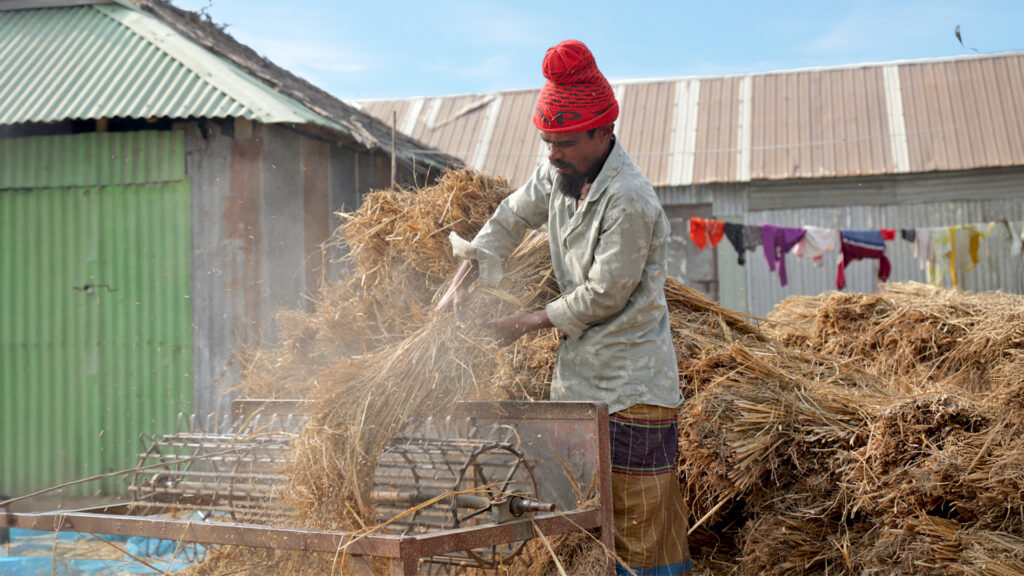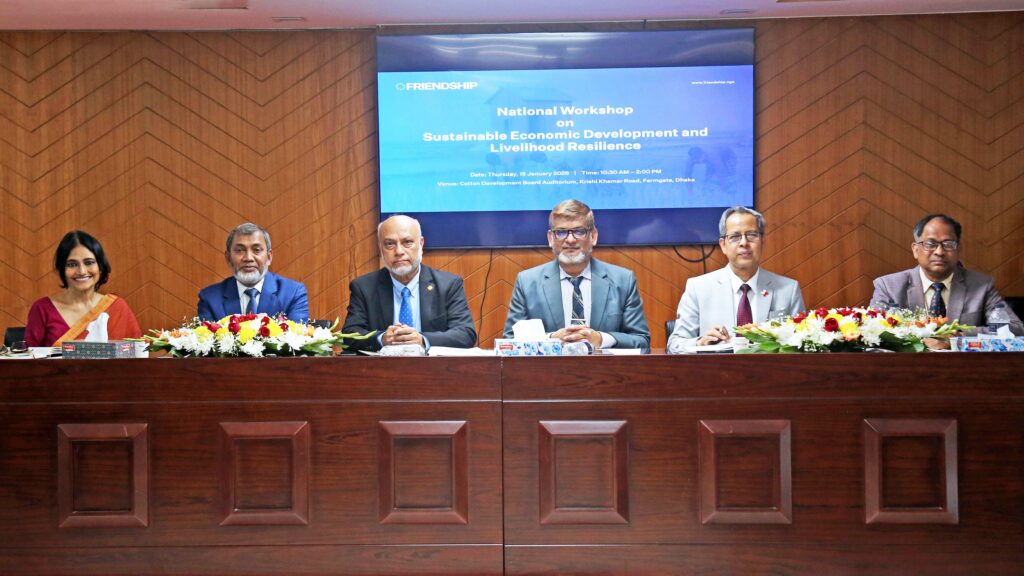Poverty Alleviation
Having vital necessities met does not ensure hope and dignity in a community, if people are not self-sufficient, and if they have no means to shape their own futures. When we began our work in the river island regions of Northern Bangladesh, we encountered many families mired in such hopelessness due to poverty and lack of opportunities.
After ensuring the availability of life-saving services, we create a path out of poverty through economic opportunities and capacity-building.
WEAVING, TAILORING AND EMBROIDERY CENTRES
Often, women find themselves in the most disadvantaged situations in society, particularly in rural Bangladesh.
But the difference between hopelessness and a dignified life is often just a question of opportunity. Friendship’s vocational training centres teach women to weave, dye and tailor fabrics that are later sold by Friendship’s lifestyle brand, Colours of the Chars, in Bangladesh and Europe.
This gives them an income as well as a set of income generating skills. Being breadwinners gives them influence at home and in their communities.
MICRO-FINANCE
Access to finance can help save or create livelihoods. Friendship offers loans to farmers and fishermen, as well as our extant beneficiaries who need a general loan as assistance to be able to get back on their feet.
The loans can cover everything from nets, boats, engines, tackle, bait and other equipment for fishermen; faming equipment, seeds, fertilisers etc. for the farmers; and a general loan for cash injections to keep businesses afloat over short-term cash shortfalls.
CAPACITY BUILDING AND TECHNICAL ASSISTANCE
Friendship advises farmers and fishermen on how to develop their skills, improve production, and overall financial sustainability, along with technical assistance and advice on gardening, modern agriculture techniques, additional subsistence farming, alternative crops, shrimp or crab farming, etc. In combination with the microfinance options—if they choose to take them, this can assist people to break the cycle of poverty.
ACCESS TO MARKET
Often farmers and fishermen face losses despite good yields, due to unfavourable market conditions.
Friendship connects producers with traders, and inform farmers in remote communities how to obtain market information so that they can sell their produce at a fair price.
We also offer extensive training on post-harvest handling and storage, so that farmers can store their surplus and sell when market prices are higher.
FRIENDSHIP FARMERS’ CLUBS
Friendship Farmers’ Clubs are participatory, inclusive and learner-centred training activity that takes place in the field over the course of a growing season (to cover all the different stages of development of a crop).
Instead of providing farmers with top-down or theoretical recommendations, farmers collectives connect many farmers to exchange practical knowledge based on their practical experience about methods that have been proven to work.
ACCESS TO GOVERNMENT SERVICES AND SOCIAL SAFETY NET
The Government of Bangladesh has social safety net programs, employment programs, and land available specifically for ultra-poor and landless families who are in dire need of assistance.
Access to these programs enables families to lift themselves resources.
Friendship’s community workers assist people in remote communities in gaining access to public services that they are otherwise unaware of.
EMPLOYMENT TO WORKERS OF LOST CRAFTS OF BENGAL
Friendship strives to preserve Bangladesh’s irreplaceable boat-building heritage before it is lost forever and help to create a sustainable livelihood for the boat-builders.
We aim to help develop a sustainable business model for these carpenters, sail-makers and rope-makers by selling their model boats in our Colours of the Chars stores in Bangladesh and Europe or organising exhibitions worldwide.
Working with the last remaining carpenters able to transmit their ancestral technical skills is a way of documenting and preserving this national heritage.
Main actions
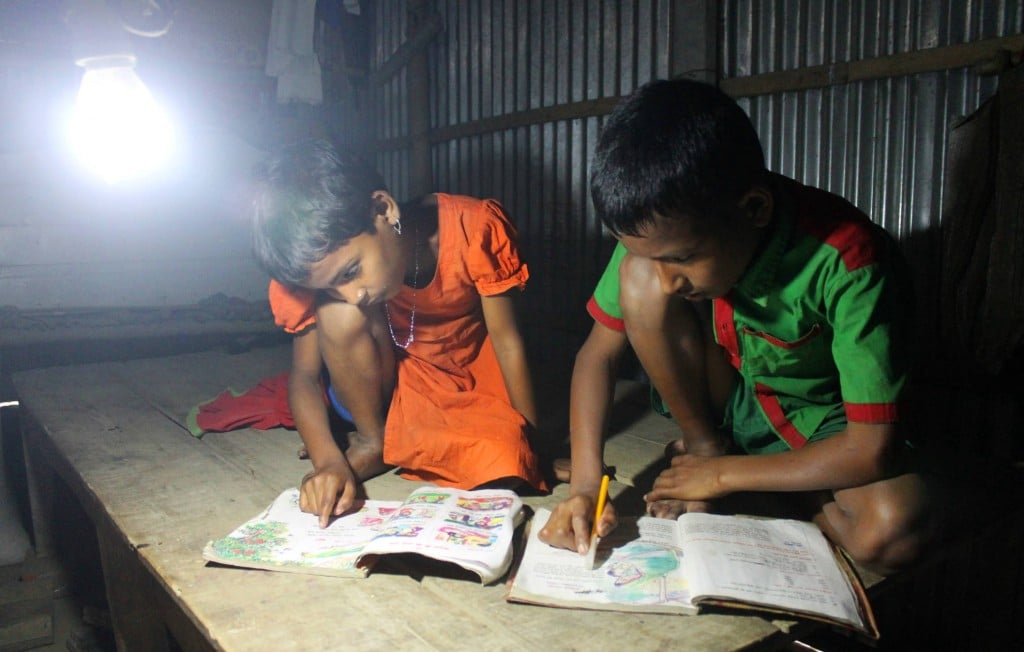
Solar Energy
We provide electricity to the ultra-poor in remote rural areas that are off the national electrical grid. The low-cost Solar Home Systems bring electric power to the houses, allowing children to read or study after sunset, parents to cook or work, phones to charge, and shops to remain open after dark. This renewable energy is also healthier and less of a fire hazard than old kerosene lamps and people feel more secure. Friendship has built the first solar energy micro-grid in char area to bring more power to households, with more under construction.
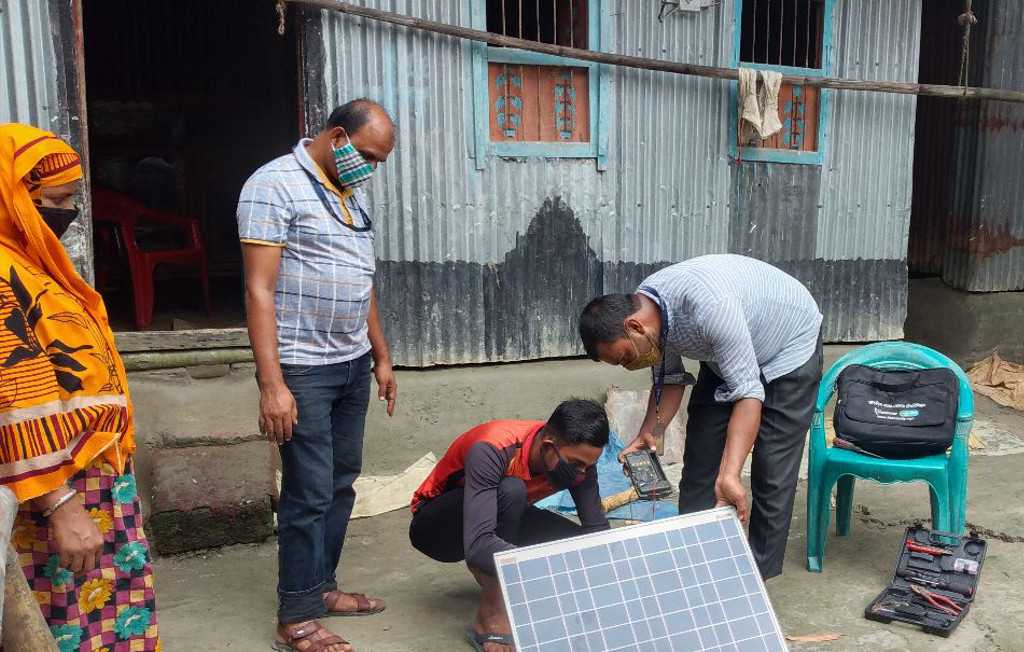
Para-Solar Technicians and Animal Health Workers
We train local char dwellers as micro-entrepreneurs in a variety of jobs that give services to their communities, while also being an income source for themselves. Para-Solar Technicians manage the sale, installation, repair and maintenance of our Solar Home Systems and their accessories. Their presence is essential to ensure that the systems remain operational. The Para-Vets provide basic, primary veterinary care, as well inoculations, medicine, diagnoses and rearing advice for the livestock in their communities, thereby ensuring the good health of the animals.
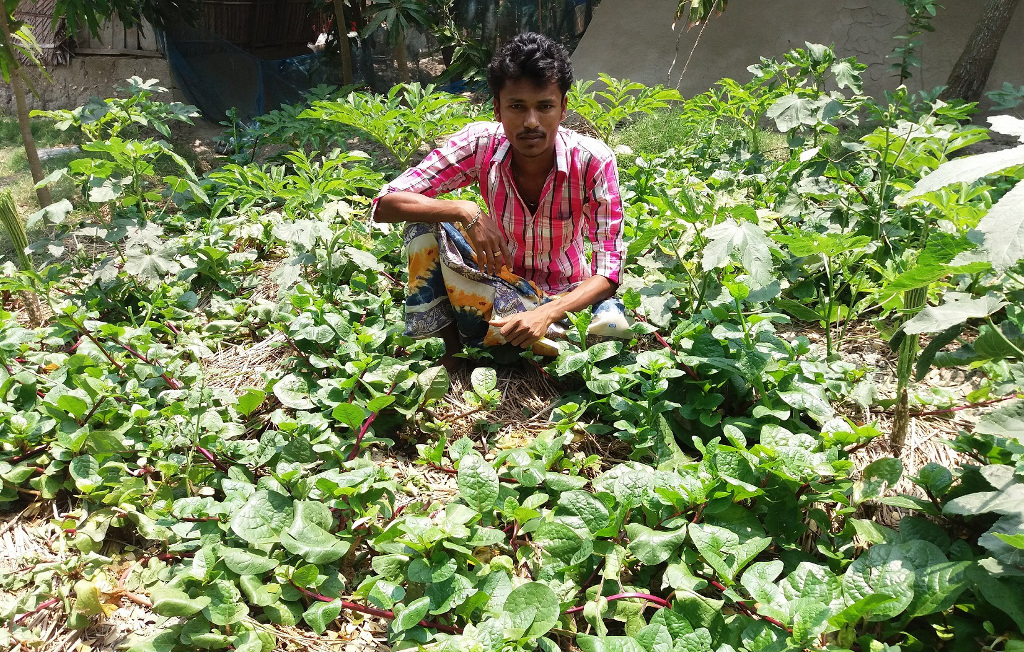
Transition from poverty to resilience
Many families in rural Bangladesh are so poor that when a disaster strikes, they cannot cope and sink deeper into poverty. To break this vicious cycle, Friendship supports families to move from dependency to relief and rehabilitation aid to actual development. It is a transition from deep poverty to resilience. We act transversally on their economic, social and political vulnerabilities through the strengthening of skills and knowledge, the creation of savings plans, access to livelihood options, information on public support services and advocacy for the mobilisation of local authorities in the fight against poverty through poverty maps.
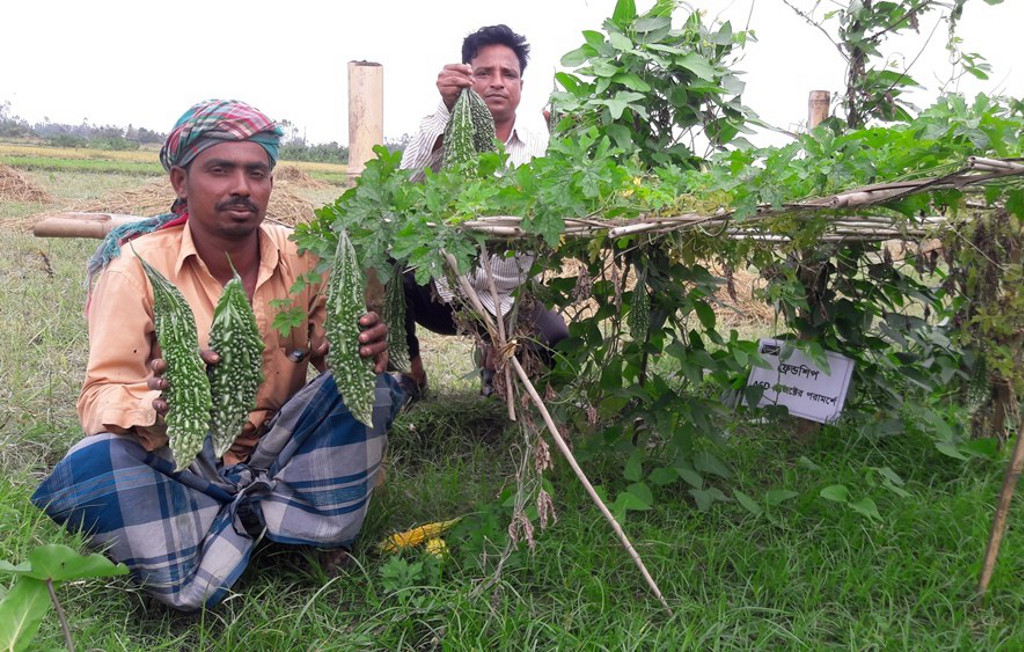
Alternative Livelihood Opportunities
We assist and train farmers to diversify their crops, adopt more efficient farming methods, use newer machinery, and access and select suitable high-quality seeds; all of which bolster their yields and provide these farmers with additional income that will be helpful in case of a hard blow. Using both the local knowledge from the communities combined with thoroughly researched expert methodologies, a special focus is put on climate-adaptive agriculture techniques such as floating seed beds or flood- and salinity-resistant crop varieties.
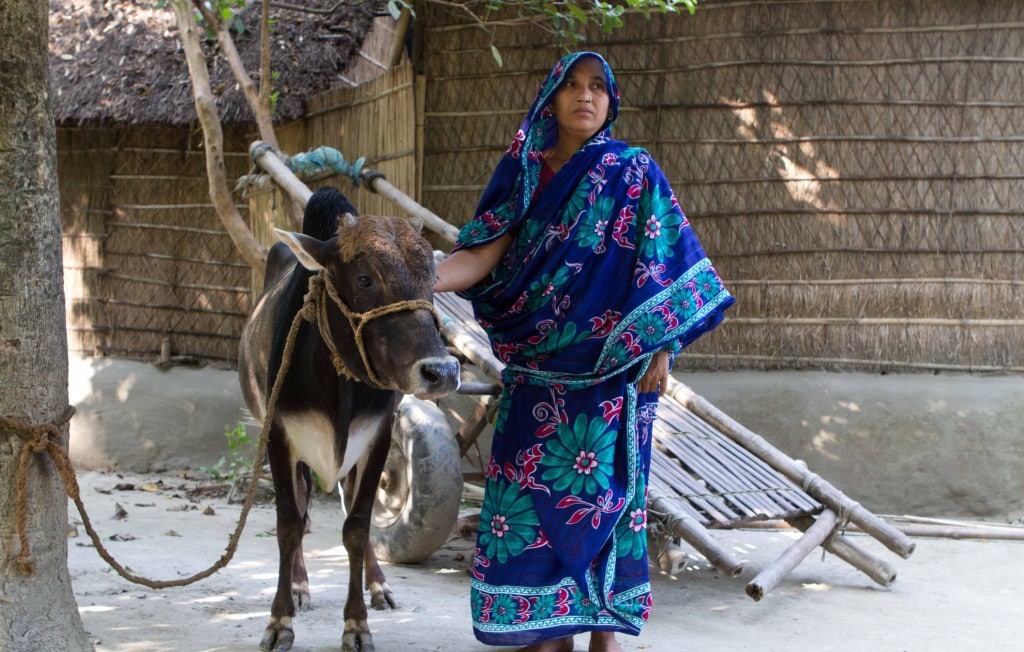
Livestock support
In rural areas, livestock are a significant investment for families and are often their most valuable asset. Livestock are often a large portion of their revenue stream and, as such, have an importance on their well-being. Friendship enables char dwellers, particularly women, to acquire a cow or other types of livestock for fattening and then sale during festivals as an additional source of income for the family.
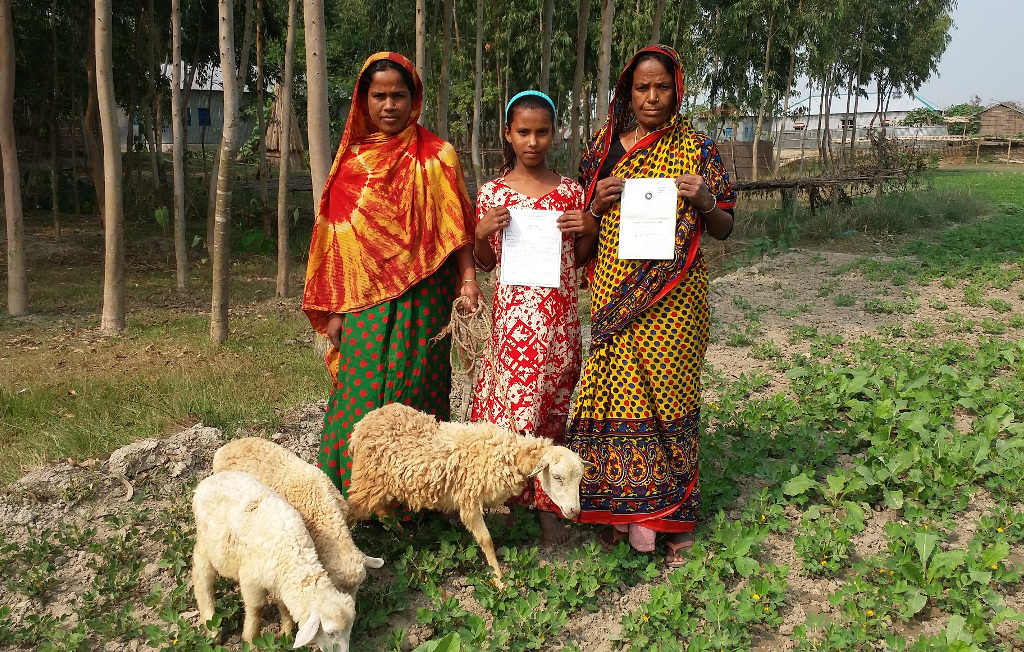
Ensuring Government safety-net support
Bangladesh has various social programs available specifically for ultra-poor and landless families who are in dire need of assistance. Through the intermediary of empowered community workers, we assist people in the most isolated areas to gain access to public services that they were otherwise unaware of. These services can be instrumental in climbing out of the poverty trap.
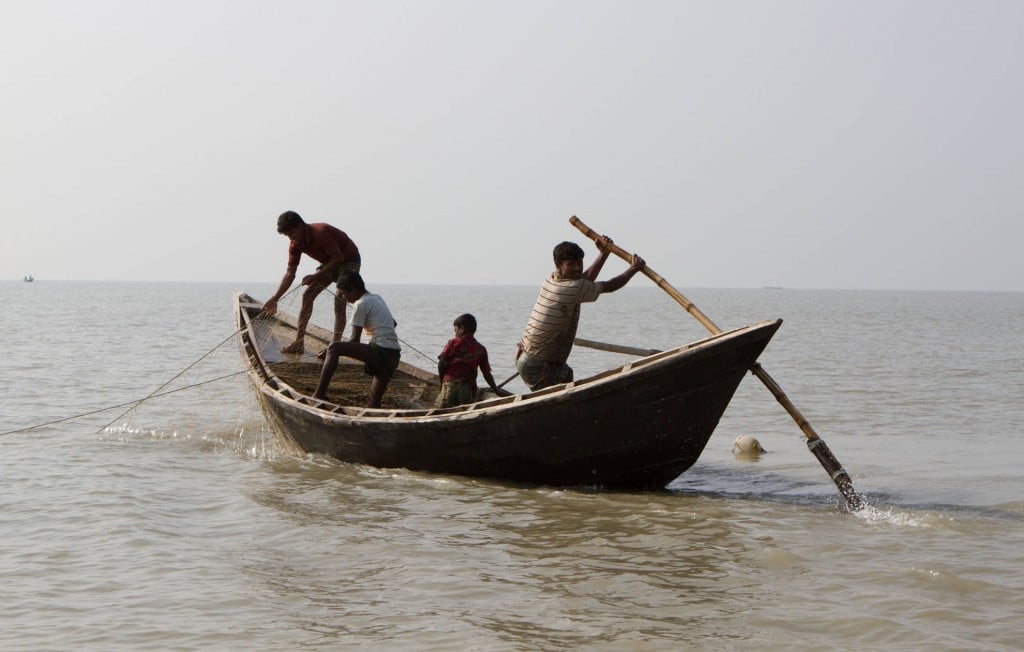
Support to Fishermen
Fishing in the Bay of Bengal is a hazardous occupation because of extreme climatic conditions and the fluctuating prices of fish in the market. Fishermen have been forced over generations to turn to local moneylenders and become trapped in permanent debt, as their income is insufficient to repay the high interest charges and loan capital. To lift them out of this trap, we strive to liberate fishermen and their families from their debts to moneylenders and we create opportunities for them to generate a fair income, get safer equipment and obtain a fairer market price.
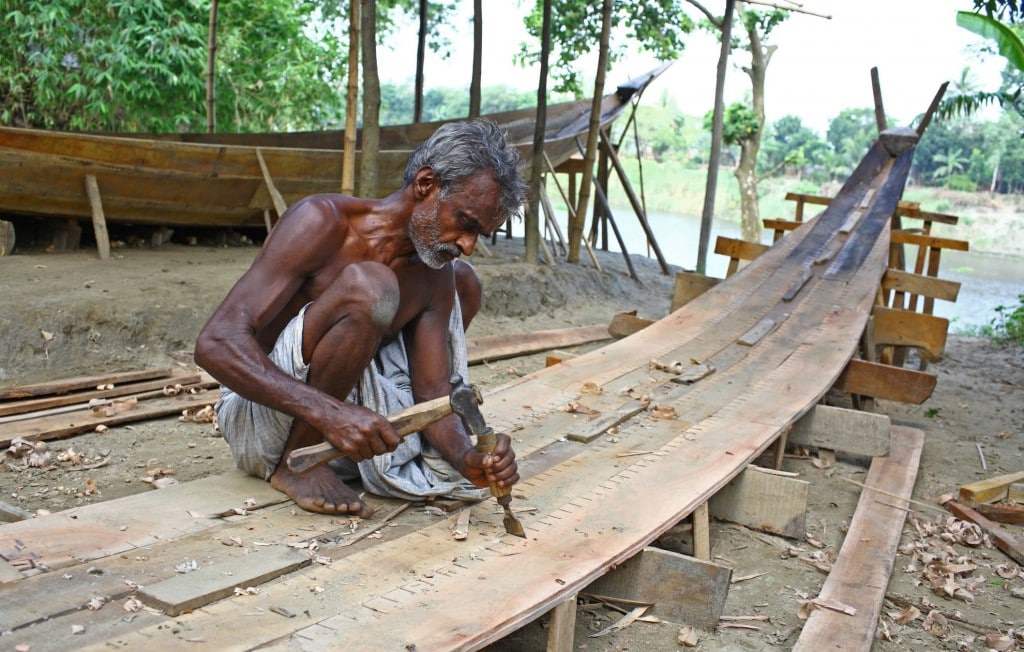
Carpenters specialized in boat crafting artistry
Friendship strives to preserve Bangladesh’s irreplaceable boat-building heritage before it is lost forever. Working with the last remaining carpenters who are able to transmit their ancestral, technical skills is a way of documenting and preserving this national heritage, while at the same time providing them with means to still make an income out of a traditional but highly complex skillset.
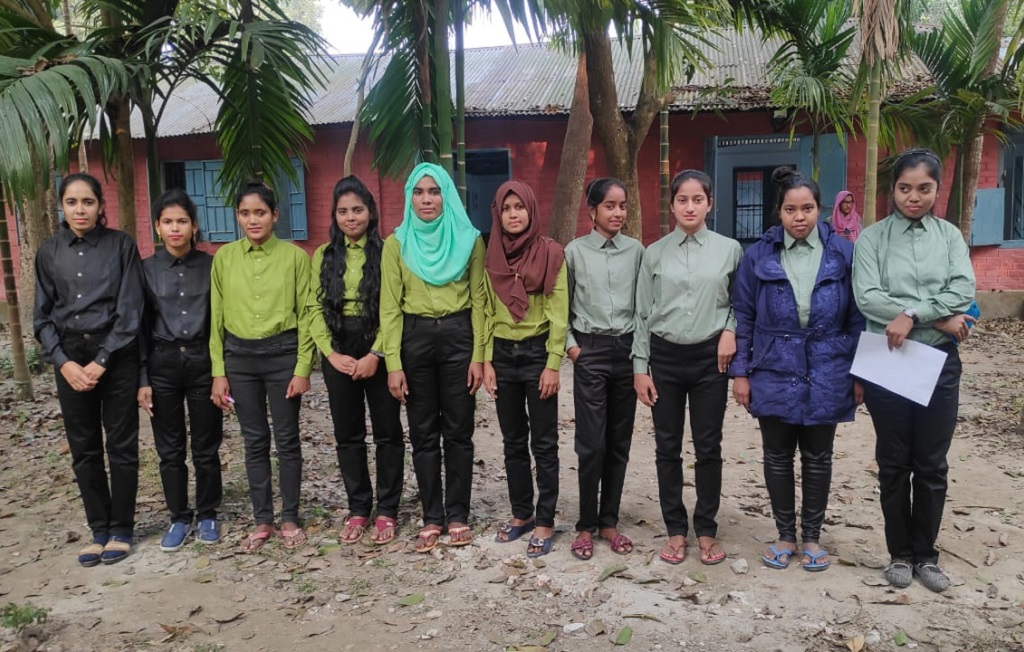
Bridging school graduates to global opportunities
With the pioneering batches of Friendship Primary School students graduating from high school, a Career Guidance Cell (CGC) was formed in January 2021. The cells have helped graduates get into the best universities, polytechnics or institutions of higher study. It has also helped some get jobs.
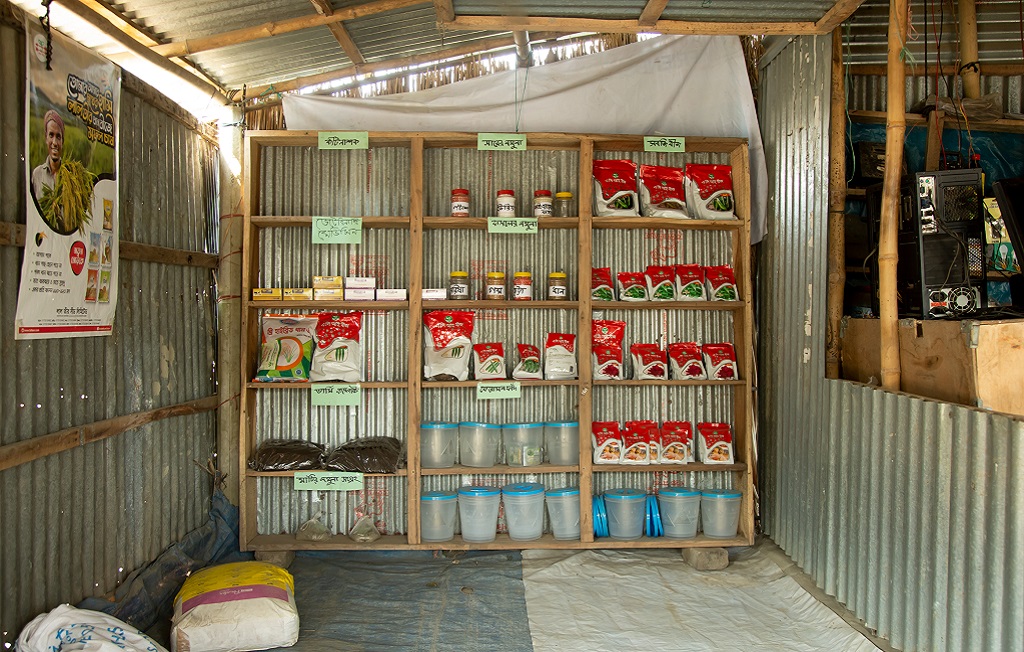
Sustainable Economic Development Hub (SED Hub)
The SED Hub is a community-based one-stop service point where small businessmen, social entrepreneurs, farmers, fishermen, etc. are able to access all forms of vital services 24/7 to the isolated communities.
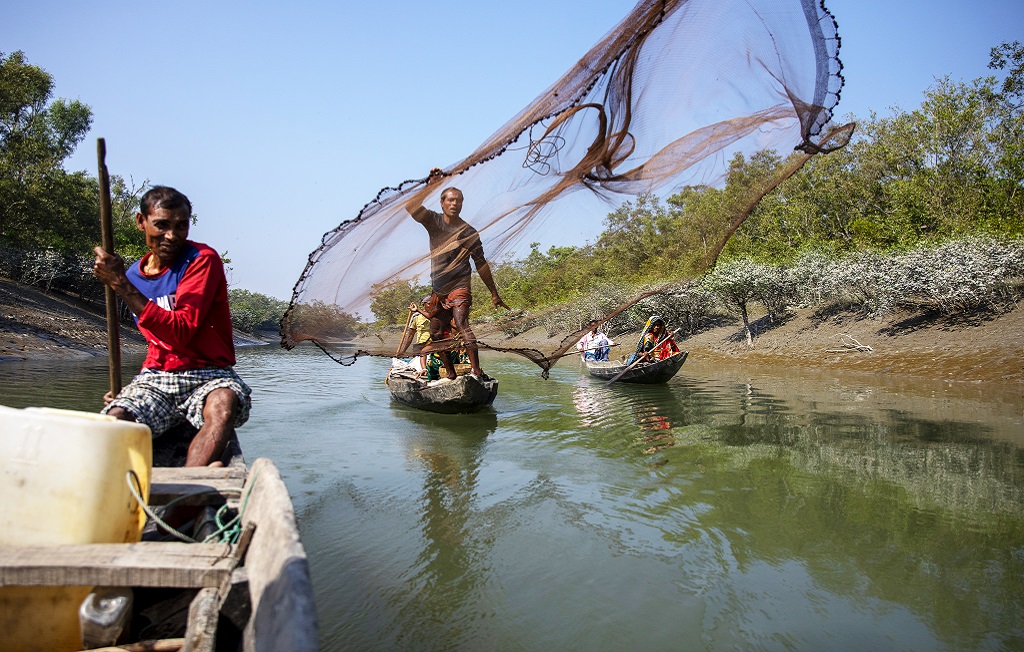
Registration of farmers and fishermen with the government
Field staff help farmers and fishermen to get registered with the relevant government departments. This entitles them to benefits such as subsidies on machinery and supplies, and helps them sell their produce at better prices.

